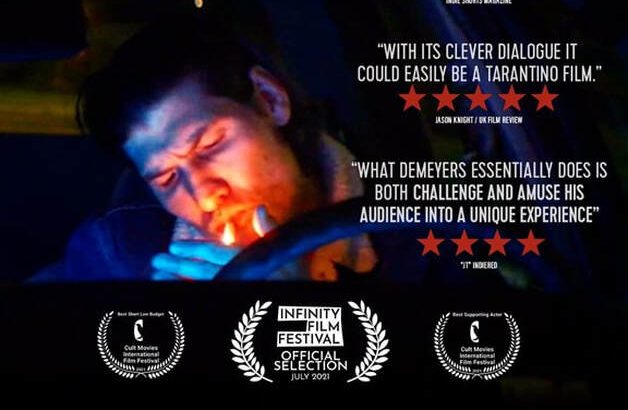Toronto: An award-winning action actor, playwright, and screenwriter from Chicago, Sammy Horowitz, was a member of a predominantly Latino street gang and drug addict who is now thriving in the film industry.
Asha Bajaj, Editorial-Director, had an opportunity to learn about Sammy’s many talents and skills in “Danny Boy.”
Given below is the extract of the interview:
Asha to Sammy: What inspires you as a writer?
I’m inspired by ideas that push boundaries and challenge people to think outside the box.
Where did you derive the idea for your film Danny Boy?
Cory and I spoke several years ago about developing a project which would take place in a car and explore a challenging narrative. The idea for Danny Boy was born, and we both wanted an homage to one of our favorite filmmakers, Quentin Tarantino.
Why is telling this story so important to you, and why are you the best person to say to it?
As a former criminal, gang member, and drug addict who often robbed and stole to get what I wanted, I could quickly identify with Francis and Danny on their journey, both in the secrets we keep and the distrust we feel.
All my stories come from lived experience and I wanted to bring something to the table so to speak which is raw and uncut and shows the type of nuances that exist in the criminal world.
Danny is gay, and Francis is old school. Both characters reflect shades of people I have known and interacted with throughout my life. Their truths were essential to me.
What was the most challenging or unusual part of making this film?
To have a story take place almost entirely in a car and remain interesting was a challenge for me as a writer, and I’m sure pushed Cory to bring his best.
Tell us about your creative process. What is unique or unusual about it?
I wrote this script two years ago after a sit-down with Cory, but after both of us became busy, I grew frustrated during the COVID-19 pandemic and was planning on shooting it on an iPhone in my car. Instead, Cory came out for a job in Los Angeles and, on 24-hour notice, decided to assemble a team of incredible artists to film Danny Boy properly. We were on location within 48 hours, rehearsed the script one night, and shot the film in four and a half hours.
Tell us about the theme of your film.
Danny Boy has several themes: betrayal, trust, criminality, and sexuality.
I want the audience to take from it that nothing is as it seems and that you can never judge a book by its cover.
Sammy, can you tell us about your transition into writing and how your career as a stunt performer informs your writing?
Sure! I have always considered myself a storyteller but didn’t understand the different mediums to tell them until I met my writing partner Adam Pasen, who taught me pretty much everything I know about writing. Then, I started partnering with him on a biopic about my life, and from there, I moved into writing plays, short movies, and television series about the darker side of society that I relate to – marginalized stories that I feel need to be told.
The biggest upside of coming from a stunt background is that I understand action sequences very well (since I’ve been a part of many of them), and this really helps when creating them on the page.
As a solo writer, I have a play and short movie in development now: Prisons, which is a play exploring class and racism through a Jewish lens, and Dayroom, a short film that Cory and I will be shooting soon further delving into prison life and the boundaries (and lack thereof) which exist inside those walls. Also, my partner Adam and I have two feature films: God Shot, which is based on many of my experiences and is currently in development with Unified Pictures, and Musket and the Rat, which is adapted from the play I wrote in 2018 and which Cory is now attached to direct. We also have three television pilots we are getting ready to go out with and have been working on for some time!
I want to keep telling stories that interest me and that I feel the need to tell. I would love to be in a Writers’ Room, of course, but I think the intrinsic need to put things down on paper that call out to me. So I want to put up Musket and the Rat in Chicago and make truthful and honest art to my lived experience.





